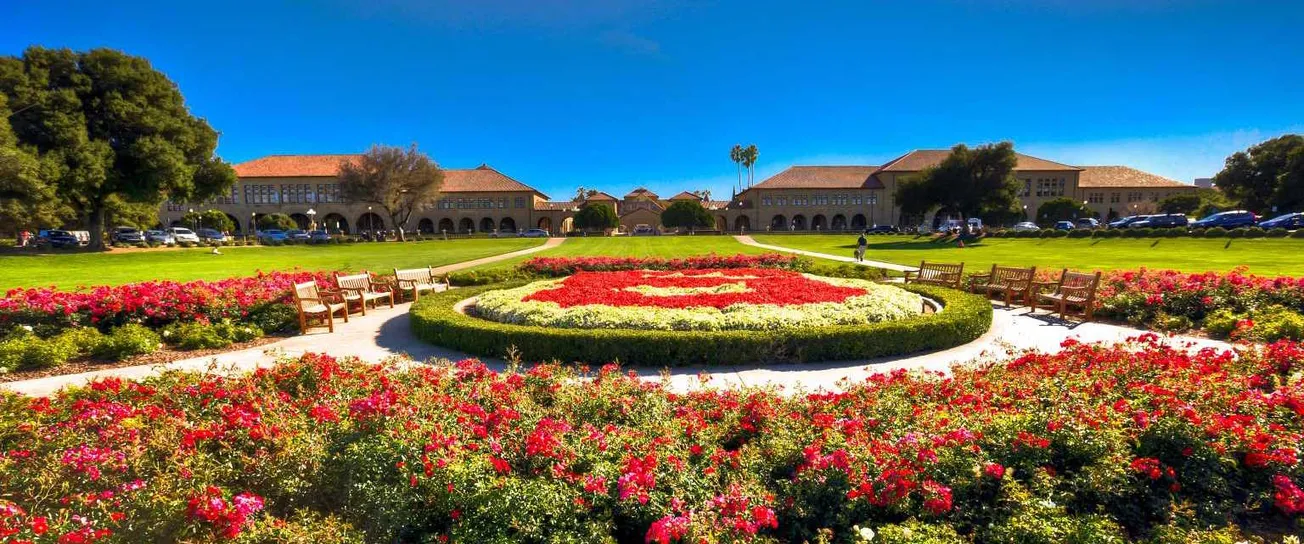Table of Contents
Taking a break from classes, meetings and activities is underrated on the Farm.
My Google calendar is overwhelming sometimes. Too many red, yellow, and green blocks – “lunch with so-and-so”, “math office hours”, “club meeting” – and not enough white. Tuning out during a lecture and inadvertently noticing my friends’ laptop screens, I see the same thing. We’re busy all the time. From lectures to meetings, we’re all trying to take full advantage of the Stanford experience. But in our attempts to extract as much value from Stanford as possible, we forget that there is value in pursuits that don’t always have an immediate end. Unscheduled time is vital for empathy, creativity, and intellectual development.
“Without solitude, no serious work is possible.” Recent psychological studies suggest that Picasso was right: solitude is vital to creativity and productivity. While Stanford is certainly home to a high concentration of extremely creative people, recent research found that American children’s creativity has declined over the last few decades. Free time spent alone is important. The *New York Times *recently reported that “Research strongly suggests that people are more creative when they enjoy privacy and freedom from interruption.” Another study, the Coding War Games, compared computer programmers’ work at 92 companies. Employees at top companies were distinguished by more privacy, more personal space to work, and more freedom from interruption.
Overscheduling makes the privacy and freedom that facilitate creativity difficult. We know this intuitively: it’s hard to find time to record a duet of “Wayfaring Stranger” with the guy next door, or to work on a side programming project, when the day is broken into slots of classes and meetings. Without the freedom from interruption that unscheduled time facilitates, creative work becomes near-impossible. Paradoxically, in our effort to squeeze as much from the Stanford experience as possible, we stifle one of Stanford’s core values: creativity. Freedom to fail, outside of the constraints of activities where grades and performance matter, lets us innovate, and move beyond safe marginal improvements to take risks that can result in greater leaps.
Even if free time doesn’t turn you into an an artist or inventor, it gives you time and energy to explore new things. Entrepreneur and writer Ben Casnocha writes that people should expose themselves to “bulk positive randomness”: conferences, website that agglomerate interesting links, and colleges are all examples of this. A weekend talk at a hackathon might leave you with a new interest in civic tech, or a pass through the Green stacks with a new tome on behavioral economics. Without time, we can’t take the risk of exploring something that we might not like.
Lack of free time also harms dialogue on campus. Stanford launched OpenXChange in late 2015 with the goal of “strengthen[ing] and unify[ing] Stanford through purposeful engagement,” claiming that it will “will push our community to consider meaningful interchange and thoughtful listening” by challenging “students, faculty and staff to think critically, investigate, and engage together.” As political polarization increases across America and debate grows more polemical, encouraging thoughtful exchange is an admirable and necessary goal. But without the time to consider issues on their own – via reading, personal inquiry, and forming opinions – students are often forced unquestioningly to resort to the opinions of friends or trusted experts, without critically researching and judging the issue for themselves. Simple talking points can easily replace complex dialogue.
While classes should promote thoughtful discussion, often the pace of the quarter system pushes us frantically to digest readings and write papers, without time to deeply appreciate and contemplate them. 35-minute dinners at Wilbur Dining aren’t enough for discussions: a recent hour-long stay past closing to discuss moral absolutism was wonderful, but all too rare. While classes may cover politics or morality, it takes time outside of readings and assignments to digest an issue and to reconcile it with your personal beliefs.
Renaissance intellectuals createdstudioli in their houses, special spaces for studying and contemplating. Machiavelli wrote that at the end of the day, “[I] strip off my muddy, sweaty workday clothes, and put on the robes of court and palace, and in this graver dress I enter the antique courts of the ancients and am welcomed by them”; then “for the space of four hours I forget the world, remember no vexations, fear poverty no more, tremble no more at death: I pass into their world.” Our analogy might be dismounting from our bikes at our dorms, slipping into our Stanford sweatpants, and coding a personal project, writing a journal entry, or reading a biography. Free time lets us contemplate things beyond the immediate and practical, like technical interviews, job applications, dorm drama, and exam curves.
So leave some white in your calendars, and use that time to relax and explore. Constantly juggling classes and extracurriculars is impressive, but it’s probably not the most fulfilling way to live. Read a novel outside, have coffee with that person you keep saying you’ll get to know better, or wander Main Quad at midnight. Creativity, empathy, and intellectual development, while adding to a resume, are also worthy for their own sake. Allow yourself some time for them.





